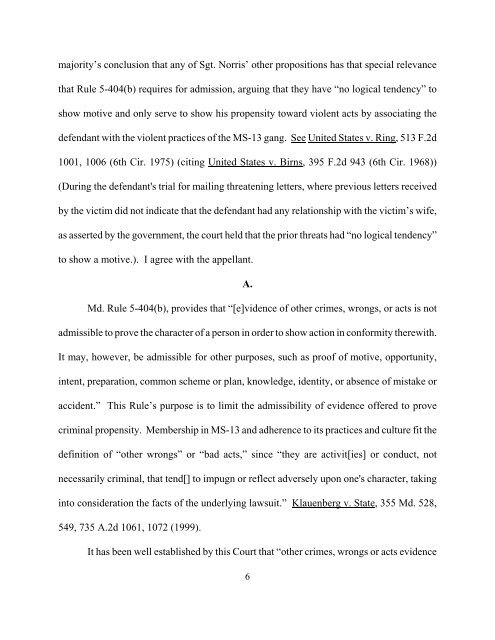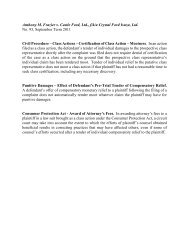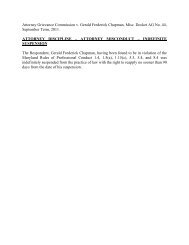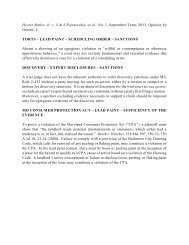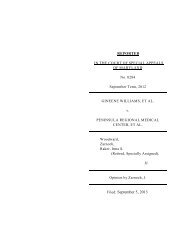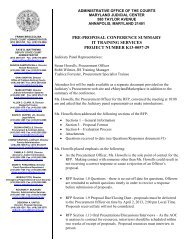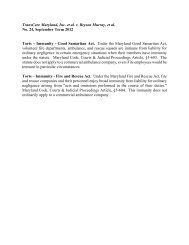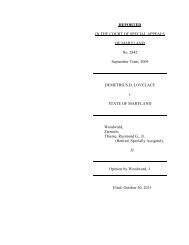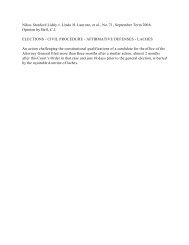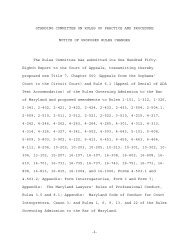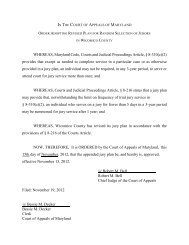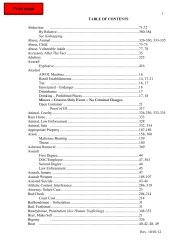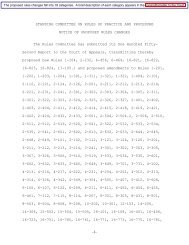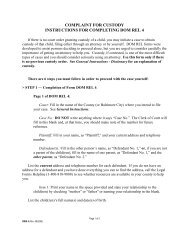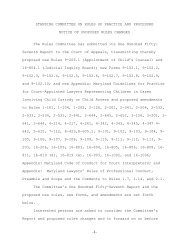HEADNOTE: Mario Rodriguez Gutierrez v. State of Maryland, No. 98 ...
HEADNOTE: Mario Rodriguez Gutierrez v. State of Maryland, No. 98 ...
HEADNOTE: Mario Rodriguez Gutierrez v. State of Maryland, No. 98 ...
Create successful ePaper yourself
Turn your PDF publications into a flip-book with our unique Google optimized e-Paper software.
majority’s conclusion that any <strong>of</strong> Sgt. <strong>No</strong>rris’ other propositions has that special relevance<br />
that Rule 5-404(b) requires for admission, arguing that they have “no logical tendency” to<br />
show motive and only serve to show his propensity toward violent acts by associating the<br />
defendant with the violent practices <strong>of</strong> the MS-13 gang. See United <strong>State</strong>s v. Ring, 513 F.2d<br />
1001, 1006 (6th Cir. 1975) (citing United <strong>State</strong>s v. Birns, 395 F.2d 943 (6th Cir. 1968))<br />
(During the defendant's trial for mailing threatening letters, where previous letters received<br />
by the victim did not indicate that the defendant had any relationship with the victim’s wife,<br />
as asserted by the government, the court held that the prior threats had “no logical tendency”<br />
to show a motive.). I agree with the appellant.<br />
A.<br />
Md. Rule 5-404(b), provides that “[e]vidence <strong>of</strong> other crimes, wrongs, or acts is not<br />
admissible to prove the character <strong>of</strong> a person in order to show action in conformity therewith.<br />
It may, however, be admissible for other purposes, such as pro<strong>of</strong> <strong>of</strong> motive, opportunity,<br />
intent, preparation, common scheme or plan, knowledge, identity, or absence <strong>of</strong> mistake or<br />
accident.” This Rule’s purpose is to limit the admissibility <strong>of</strong> evidence <strong>of</strong>fered to prove<br />
criminal propensity. Membership in MS-13 and adherence to its practices and culture fit the<br />
definition <strong>of</strong> “other wrongs” or “bad acts,” since “they are activit[ies] or conduct, not<br />
necessarily criminal, that tend[] to impugn or reflect adversely upon one's character, taking<br />
into consideration the facts <strong>of</strong> the underlying lawsuit.” Klauenberg v. <strong>State</strong>, 355 Md. 528,<br />
549, 735 A.2d 1061, 1072 (1999).<br />
It has been well established by this Court that “other crimes, wrongs or acts evidence<br />
6


